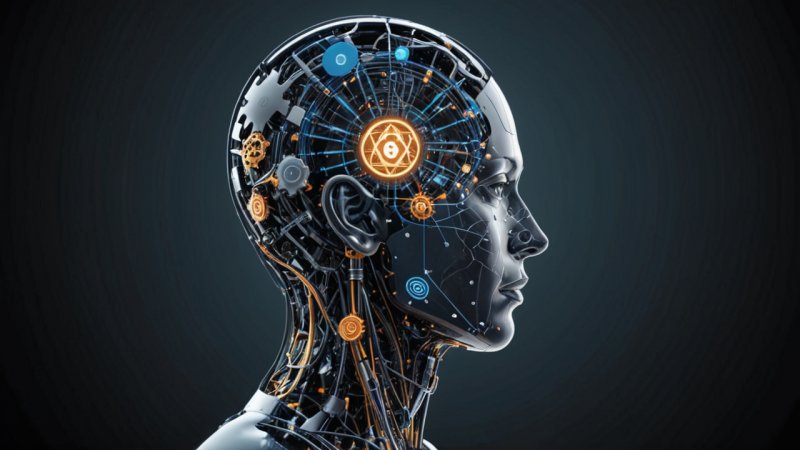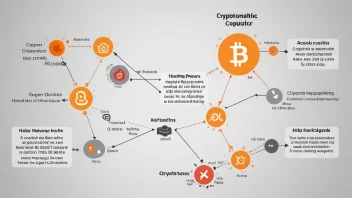The rapid advancement of artificial intelligence (AI) technology has transformed numerous sectors, prompting discussions about its ethical implications on a global scale. As AI systems increasingly influence decision-making processes and societal norms, the challenge of ensuring ethical standards becomes paramount. This article delves into the complexities of AI's role in shaping global ethics, examining the challenges it presents and the opportunities it creates for establishing a more just and equitable world.
Understanding AI and Its Ethical Implications
Artificial Intelligence encompasses a wide array of technologies, including machine learning, natural language processing, and robotics. These systems are designed to mimic human cognitive functions, enabling them to learn from data and make decisions. However, the deployment of AI raises several ethical questions:
- Bias and Discrimination: AI systems can perpetuate or even exacerbate existing biases found in training data, leading to discriminatory outcomes.
- Accountability: As AI systems make more autonomous decisions, determining accountability for those decisions becomes complicated.
- Transparency: The “black box” nature of many AI algorithms makes it difficult to understand how decisions are made, challenging ethical governance.
- Privacy Concerns: The collection and analysis of vast amounts of personal data raise serious privacy issues that must be addressed.
The Global Challenge of Ethical AI
The global challenge of ethical AI is multifaceted, as it intersects with various cultural, legal, and societal norms. Different countries have differing views on what constitutes ethical AI, influenced by their unique historical and social contexts. For instance, Western nations may prioritize individual privacy rights, while some Eastern cultures may focus on community welfare and collective benefits.
This divergence poses a significant challenge for international cooperation on AI ethics. Global organizations, such as the United Nations, are working toward establishing universal guidelines, but the path to consensus is fraught with difficulty. Additionally, the rapid pace of technological development often outstrips the ability of regulatory bodies to keep up, leading to a regulatory lag that can have far-reaching consequences.
Opportunities for Ethical AI Implementation
Despite the challenges, the integration of AI into global ethics also presents unique opportunities. By harnessing AI's capabilities responsibly, stakeholders can foster positive societal change. Some opportunities include:
- Enhanced Decision-Making: AI can assist in analyzing complex data sets, leading to more informed and equitable decisions in areas like healthcare, law enforcement, and public policy.
- Promoting Inclusivity: AI can be used to identify and mitigate biases in existing systems, promoting greater inclusivity and representation.
- Global Collaboration: The ethical challenges posed by AI encourage collaboration across borders, leading to shared standards and best practices.
- Education and Awareness: Engaging the public in discussions about AI ethics can enhance understanding and foster a culture of responsible innovation.
Case Studies: Ethical AI in Action
Several organizations and initiatives have begun to explore ethical AI frameworks, providing valuable case studies on the subject:
1. The Partnership on AI
This multi-stakeholder organization includes companies, academics, and civil society groups committed to studying and formulating best practices for AI technology. Their work emphasizes transparency and accountability, striving to mitigate bias and ensure that AI serves the public good.
2. AI for Good Global Summit
Organized by the International Telecommunication Union, this summit brings together innovators and leaders to discuss how AI can be used to achieve the United Nations Sustainable Development Goals (SDGs). The focus is on leveraging AI to solve pressing global issues, such as poverty, inequality, and climate change.
The Role of Policy and Regulation
For AI to be ethically integrated into society, robust policy and regulatory frameworks are essential. Governments and international organizations must work collaboratively to create guidelines that govern AI development and deployment. This includes:
- Establishing Ethical Guidelines: Clear ethical frameworks should be developed to guide AI practitioners in making responsible choices.
- Promoting Accountability: Mechanisms must be in place to hold organizations accountable for the ethical implications of their AI systems.
- Encouraging Transparency: Policies should mandate transparency in AI algorithms, allowing stakeholders to understand how decisions are made.
- Engaging the Public: Public input should be sought in the development of AI policies to ensure diverse perspectives are considered.
The Future of AI and Global Ethics
The future of AI in the context of global ethics is both promising and uncertain. As AI technologies continue to evolve, the need for ethical considerations will only intensify. Stakeholders must remain vigilant in addressing the ethical challenges that arise while also seizing the opportunities for positive impact. By fostering a culture of collaboration and accountability, we can guide the development of AI toward a future that prioritizes ethical considerations and the well-being of all humanity.
In conclusion, AI's role in global ethics presents a complex landscape filled with both challenges and opportunities. As we navigate this evolving field, the need for inclusive dialogue, robust policy frameworks, and a commitment to ethical principles will be critical in shaping a future where technology serves as a force for good.






